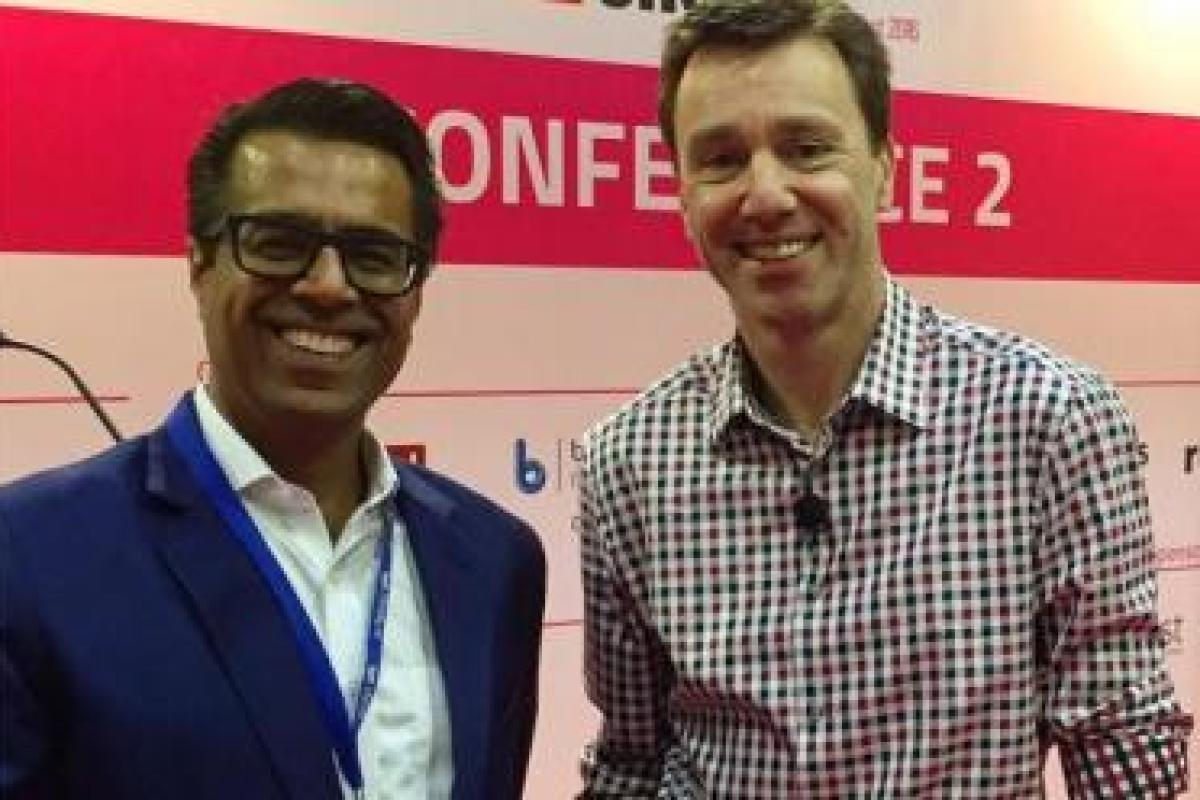The recent breakfast session organized by the Dubai Chapter of The Marketing Society saw prominent business author and consumer behaviour expert Philip Graves present a talk titled “Can psychology can help marketing?” The session which was organised with the support of IBM at the recent Ecommerce Show saw marketers from different industries gather together to hear Graves’ insights on consumer psychology and the drivers of consumer behaviour.
Philip is no stranger to people passionate about the subject of consumer behavior. He is considered a leading expert and consultant on the subject of behavioral economics and behavioral psychology. He is the author of the book, Consumer.ology, which was named one of Amazon’s top ten best business books of 2010 and has been translated into seven languages.
In addition to his consultancy work, Philip is a frequent commentator on consumer topics in the media, an associate at Frontier Economics, regularly speaks at events and is on the global advisory board of the intelligent virtual assistant company, Next IT.
In his session, Graves discussed the importance of the unconscious mind and how it behaves in different contexts. He also emphasised the importance of ease as the unconscious mind is more inclined to choose the easier option. He also described how consumers ration attention unconsciously, while also understanding that attention is a prerequisite to gaining a reward.
His talk was crisp, full of insights and packed with examples of how the unconscious mind shapes consumer behaviour the most, and how the traditional method of consumer research completely disregard this aspect. Here are the 3 key insights from the talk:
- In the battle of attracting and keeping attention, the unconscious mind wins. Or as he puts it “Attention is Unconsciously Rationed”. Hence the most effective element of a brand’s work is work that impacts the unconscious mind. He gave examples of how Red Bull created the image of “energy drink” when they launched, despite not having a substantial differentiator in the product. Some great work in how they used social influencers to give the product the right image, as well as boost the “energy” attribute.
- Traditional Market Research disregards the unconscious mind. And not just that, by asking and framing “survey questions” in certain ways, it exerts its own influence on the unconscious mind. Leading to bias and of course insights that are not real. According to Philip, “Marketers should disregard 95% of the surveys and focus groups”.
- Instead, what marketers should do is get some help from the consumer “Psychologists”. Questions like “How Consumers Think?”, “What Influences the Unconscious Mind?” are questions that dramatically enhance decision of “How to influence consumer behavior”.
It was a refreshing talk, challenging conventions and more importantly pulling people away from the day to day work to give them time to absorb, think and reflect.
This review was written by Weber Shandwick. http://www.webershandwick.com/
